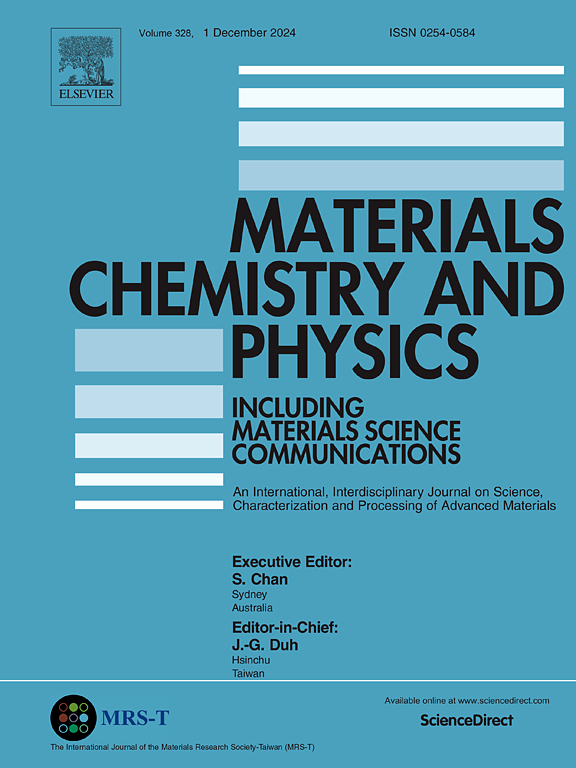Exploring the effect of Ti and Al contents on the microstructural, mechanical, and corrosion resistance features of VNbMoTaWTiAlN refractory high entropy alloy coatings
IF 4.3
3区 材料科学
Q2 MATERIALS SCIENCE, MULTIDISCIPLINARY
引用次数: 0
Abstract
High entropy alloys (HEAs) are a class of novel multicomponent alloys comprised of five or more elements in a single phase through entropy maximization. This work prepared five refractory-based (VNbMoTaWTiAl)N nitrogen-doped high entropy ally (RHEAN) coatings with various Ti and Al chemical compositions through a high power impulse magnetron sputtering technique. The effects of variable atomic percentage ratios of Ti and Al on the chemical composition, phase, microstructure, mechanical properties, and anticorrosion behaviors of the RHEAN coatings were studied. The work showed that all the coatings were amorphous due to the high ion bombardment effect by the high-energy HiPIMS plasma. The crystalline structures of coatings were destroyed and changed into amorphous by such high-energy ion bombardments. The variation of input powers of the TiAl target altered the film thickness, chemical composition, mechanical and corrosion resistance of the coatings. Meanwhile, the coating with the Ti, Al, and N ratios of 1.2, 0.9, and 1.0 showed the highest hardness of 14.6 GPa and a corrosion resistance 6.33 times better than bare 304 stainless steel, which presented a potential candidate for crucial corrosive environment applications.
探讨Ti和Al含量对VNbMoTaWTiAlN耐火高熵合金涂层显微组织、力学性能和耐蚀性能的影响
高熵合金(High entropy alloys, HEAs)是一类通过熵最大化原理将5种或5种以上的元素组成在单相中的新型多组分合金。本文采用高功率脉冲磁控溅射技术制备了5种不同Ti和Al化学成分的耐火基(VNbMoTaWTiAl)N氮掺杂高熵合金(RHEAN)涂层。研究了不同原子百分率Ti和Al对涂层化学成分、物相、显微组织、力学性能和防腐性能的影响。研究表明,由于高能HiPIMS等离子体的高离子轰击作用,所有涂层都是无定形的。这种高能离子轰击破坏了涂层的晶体结构,使涂层变为非晶态。靶材输入功率的变化改变了涂层的膜厚、化学成分、机械性能和耐腐蚀性。与此同时,Ti、Al和N含量分别为1.2、0.9和1.0时,涂层的硬度最高,达到14.6 GPa,耐腐蚀性是304不锈钢的6.33倍,是关键腐蚀环境应用的潜在候选材料。
本文章由计算机程序翻译,如有差异,请以英文原文为准。
求助全文
约1分钟内获得全文
求助全文
来源期刊

Materials Chemistry and Physics
工程技术-材料科学:综合
CiteScore
8.70
自引率
4.30%
发文量
1515
审稿时长
69 days
期刊介绍:
Materials Chemistry and Physics is devoted to short communications, full-length research papers and feature articles on interrelationships among structure, properties, processing and performance of materials. The Editors welcome manuscripts on thin films, surface and interface science, materials degradation and reliability, metallurgy, semiconductors and optoelectronic materials, fine ceramics, magnetics, superconductors, specialty polymers, nano-materials and composite materials.
 求助内容:
求助内容: 应助结果提醒方式:
应助结果提醒方式:


